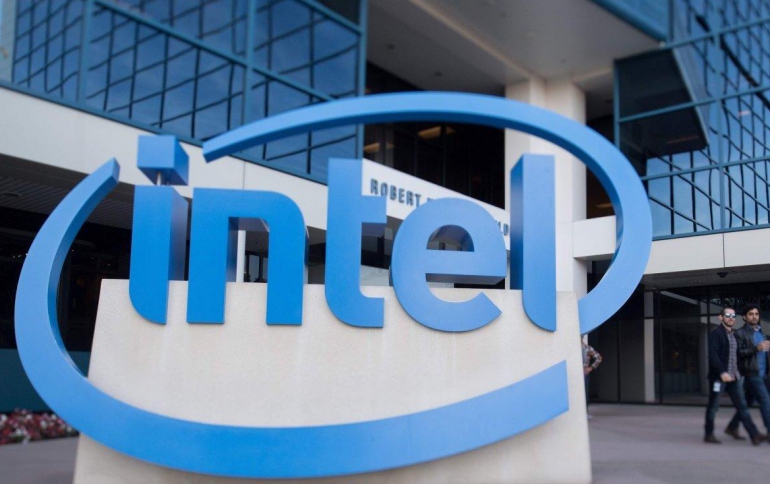
Intel reports Strong Fourth-quarter Results on Data-center Growth
Intel reported strong profit and revenue in the fourth quarter, driven by strong growth in its data center business.
The company also gave an upbeat annual sales forecast, as the industry scrambles to fix a vulnerability in its PC and server chips.
Sales in the current period will be about $15 billion, plus or minus $500 million, and annual revenue will rise to a record $65 billion, the company said in a statement late Thursday.
In the fourth quarter, sales climbed 4.3 percent to $17.1 billion, Intel said.
"2017 was a record year for Intel with record fourth-quarter results driven by strong growth of our data-centric
businesses," said Brian Krzanich, Intel CEO. "The strategic investments we've made in areas like memory, programmable solutions, communications and autonomous driving are starting to pay off and expand Intel's growth opportunity. In 2018, our highest priorities will be executing to our data-centric strategy and meeting the commitments we make to our shareholders and our customers."
"The fourth quarter was an outstanding finish to another record year. Compared to the expectations we set, our revenue was stronger, our operating margins were higher, and our spending was lower," said Bob Swan, Intel CFO.
"Intel's PC-centric business continued to execute well in a declining market while the growth of our data-centric businesses shows Intel's transformation is on track."
After it announced the chip vulnerability Jan. 3, Intel told investors there would be no material impact on earnings. The company initially said it wasn't liable because the chips were not faulty noting that the potential exploit affects all modern processors, not just Intel products. The company has since then apologized and has submitted regular updates on the efforts to roll out software patches that close off the hole hackers might have used. While there have been no reports of data being stolen via this method, some of the patches have caused computers to repeatedly reboot or slow down, particularly older machines.
Intel has already begun working to incorporate silicon-based changes to future products that will directly address the Spectre and Meltdown threats, CEO Brian Krzanich said. These products will begin appearing later this year, he added.
In the fourth quarter, Intel saw strong performance from data-centric businesses, which accounted for 47% of Intel's fourth-quarter revenue, an all-time high.
The Data Center Group (DCG), Internet of Things Group (IOTG) and Programmable Solutions Group (PSG) all achieved record quarterly revenue. The data-center unit had revenue of $5.6 billion, a jump of 20 percent.
Intel's Client Computing Group (CCG) shipped a record volume of Intel Core i7 processors, launched the new 8th Gen Intel Core processor with Radeon RX Vega M Graphics, and announced an expanding line-up of LTE and 5G multi-mode modems. The company's PC chip unit had fourth-quarter sales of $9 billion, down 2 percent from a year earlier.
The Non-Volatile Memory Solutions Group (NSG) launched the new Intel Optane SSD DC P4800X Series for the data center. Sales of memory chips rose 9 percent, while revenue from chips for "internet of things" devices climbed 21 percent.
The company is also advancing efforts to compete and win in artificial intelligence with the Intel Nervana Neural Network Processor, customer momentum for its Intel Movidius vision processing unit (VPU), and continued customer adoption of Intel Xeon Scalable processors.
In autonomous driving, Mobileye had a strong finish to 2017 with a total of 30 ADAS customer designs wins as well as design wins for advanced L2+ and L3 autonomous systems with 11 automakers.





















